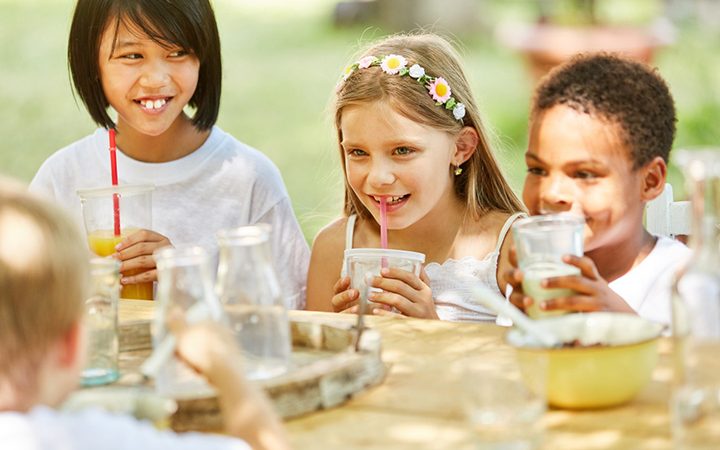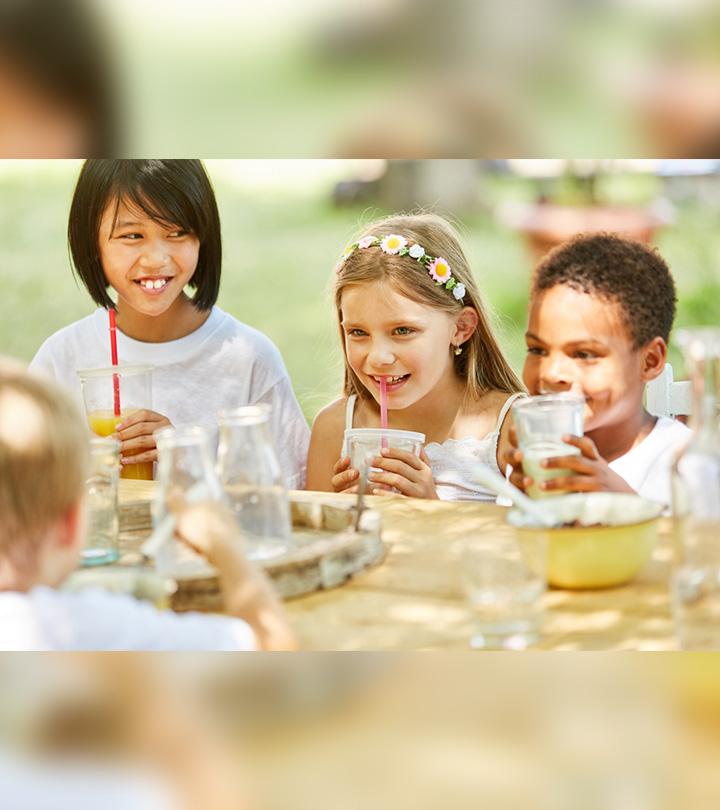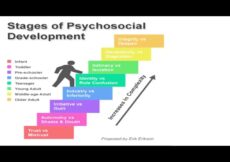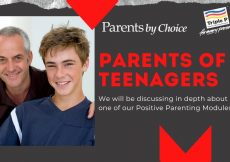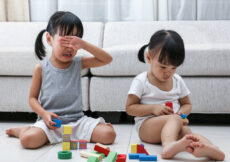Energy drinks are ready-to-drink, caffeinated beverages known for boosting energy and improving mental alertness and physical performance. Several adults consume them regularly. However, children and adolescents are strongly discouraged from drinking energy drinks due to their proven negative effects on health.
Children and teenagers often confuse energy drinks with sports drinks. As a result, they consume large quantities of energy drinks for general purposes, such as hydration. Hence, informing children about energy drinks and their safety is essential.
This post tells you the harmful effects of energy drinks for children and the healthy alternatives you should pick to replace energy drinks from your child’s diet.
But before we begin, let’s understand the difference between energy drinks and sports drinks.
Energy Drinks Vs. Sports Drinks
Children need to understand the difference between sports drinks and energy drinks. Sports drinks are fluids used for hydration during strenuous activity. In contrast, energy drinks are beverages used to boost energy and enhance athletic performance.
Typically, an energy drink contains sugar, antioxidants, vitamins, and caffeine. On the other hand, sports drinks primarily contain sugar and electrolytes, such as sodium and potassium, but no caffeine. According to experts, children and teens across ages don’t require energy drinks. However, sports drinks can be useful for young athletes engaging in prolonged, vigorous physical activities.
The sugar in sports drinks provides energy during strenuous activity, and the electrolytes replenish lost salts, helping the muscles work properly. Yet, whether a child indulging in strenuous sports should take sports drinks is a decision one should make in consultation with a sports nutritionist or pediatrician.
Note: Vitaminwater is another ready-to-drink beverage that is marketed to boost a child’s health. This product mainly contains vitamins and minerals. However, it may also contain sugar, caffeine, and other herbal ingredients. Thus, experts recommend against Vitaminwater use for children.
Why Are Energy Drinks Bad For Children?
According to experts at Seattle Children’s, there are two reasons why energy drinks for children aren’t a good choice.
First, energy drinks are marketed as dietary supplements, which do not undergo US Food And Drug Administration’s (US FDA) safety checks. The absence of safety checks raises the chances of these products containing hidden ingredients, such as herbs, in unknown quantities.
Second, energy drinks contain several questionable ingredients, such as caffeine, in high and unregulated amounts that can adversely affect a child’s health in the long run. Besides caffeine, some other common ingredients in energy drinks that can prove harmful for children include
- Sugar
- Legal stimulants such as taurine and L-carnitine
- Amino-acid derivatives
- Herbs or herbal supplements such as ginseng and guarana
The next section discusses the effects of each of these ingredients on a child’s health.
Possible Health Risks Of Energy Drinks For Children
Generally, there are two kinds of energy drinks available in the market. Both contain similar ingredients but vary in serving size. One comes in containers the same size as a regular soda, such as a 16oz can, whereas the other, known as energy shots, comes in small containers containing two to two-and-a-half ounces of concentrated energy drink.
Consuming either of these energy drinks can raise several short- and long-term health concerns, such as:
- Anxiety and Insomnia: Experts at the American Academy of Child and Adolescent Psychiatry advise young children to avoid caffeine intake and limit the intake to no more than 100mg (one cup) for children between 12 and 18 years.
The caffeine content can be much more than anticipated in energy drinks due to the presence of additional stimulants, such as guarana, a plant product/extract that also contains caffeine.
High caffeine intake can impact the central nervous system (CNS) and lead to anxiety and insomnia. Besides these, some of the other adverse effects of energy drinks that children may experience are
-
- Jitteriness
- Difficulty maintaining attention
- Restlessness
Note: Regular consumption of caffeinated energy drinks can lead to caffeine dependence in children and teens. In such cases, when they quit energy drinks, they may develop withdrawal symptoms, such as constant headaches, drowsiness, and chronic fatigue.
- Obesity and type-2 diabetes: Most energy drinks contain high amounts of sugar or sweeteners, such as high fructose corn syrup. Excessive consumption of sugar raises the risk of unwanted weight gain, resulting in obesity and type-2 diabetes. Caffeine can further exacerbate the problem as it’s known to reduce insulin sensitivity in a dose-dependent manner, meaning the higher the caffeine intake, the more the dip in insulin sensitivity.
- Appetite suppression: Energy drinks contain significant amounts of sugar, almost equivalent to or higher than the amount of sugar you find in soda. Glucose, high fructose corn syrup, and sucrose are the sugar forms usually found in energy drinks. Consuming these sugars in high amounts can load a child’s tummy and suppress their appetite for other foods. Also, the high amounts of caffeine in energy drinks can stimulate the sympathetic nervous system (SNS), causing enhanced satiety and hunger suppression.
- Dehydration: Apart from being a stimulant, caffeine also has diuretic effects. Hence, excessive consumption of caffeine, especially when the child or teen is doing vigorous activity in hot climates, can increase fluid loss from the body, resulting in dehydration. Furthermore, natriuresis or sodium excretion through urine is another physiological effect of caffeine consumption that can worsen dehydration.
- Dental cavities: Energy drinks have low pH and high sugar content. Both these factors cause enamel erosion, leading to tooth decay in children. According to a study published in General Dentistry, energy drinks can do more harm to tooth enamel than sports drinks. Thus, children who consume such products should brush their teeth at least half an hour after consuming them.
- Bone loss: Children require optimum levels of calcium for proper growth and development. Consumption of high amounts of caffeine is linked to lower calcium absorption (bioavailability) and increased calcium excretion, contributing to bone loss. Hence, energy drinks aren’t a good choice for them.
- Hypertension and arrhythmia: Research studies demonstrate that energy drinks can cause an increase in heart rate and blood pressure. Hence, overconsumption can lead to adverse outcomes, such as hypertension and arrhythmia. The main cause of these is the ergogenic effect of caffeine.
Besides these, excess energy drink consumption can cause children and teens to exhibit high-risk behavior. Although rare, excessive energy drink consumption can cause seizures, mania, stroke, and even death.
Adverse effects of excess energy drink consumption can be particularly dreadful in children with existing conditions such as asthma or chronic heart disease. In such cases, energy drinks can also interfere with the medications.
Healthy Alternatives To Energy Drinks
Water is the best source of hydration for children across ages. But if you are looking for options that provide hydration and energy, you can give your child the following healthy natural beverages.
- Coconut water
- Buttermilk
- Homemade vegetable juices
- Unsweetened and naturally flavored water
- Unsweetened and low-fat milk
Energy drinks are high-sugar, caffeinated beverages that children and teens should avoid. Consuming such beverages can affect their health both in the short term and long term. Hence, guide your child to skip energy drinks and opt for healthy beverages such as coconut milk, fresh, homemade vegetable juice with sugar, or buttermilk, which are nutritious enough to support your child‘s growth and development.
References:
MomJunction’s health articles are written after analyzing various scientific reports and assertions from expert authors and institutions. Our references (citations) consist of resources established by authorities in their respective fields. You can learn more about the authenticity of the information we present in our editorial policy.
- Energy Drinks.
https://www.nccih.nih.gov/health/energy-drinks - Kids Should Not Consume Energy Drinks, and Rarely Need Sports Drinks, Says AAP.
https://www.healthychildren.org/English/news/Pages/Kids-Should-Not-Consume-Energy-Drinks-and-Rarely-Need-Sports-Drinks-Says-AAP.aspx - Energy Drinks.
https://www.acmt.net/_Library/Public_Affairs/Energy_Drinks.pdf - Sports Drinks and Energy Drinks.
https://kidshealth.org/en/parents/power-drinks.html - Healthy drinks for kids.
https://www.pregnancybirthbaby.org.au/healthy-drinks-for-kids - A Serious Warning: Energy Drinks for Children and Teens.
https://pulse.seattlechildrens.org/a-serious-warning-energy-drinks-for-children-and-teens/. - The Buzz on Energy Drinks.
https://www.cdc.gov/healthyschools/nutrition/energy.htm - Ahmed Abdulrahman Alsunni. (2015). Energy Drink Consumption: Beneficial and Adverse Health Effects.
https://www.ncbi.nlm.nih.gov/pmc/articles/PMC4682602/ - Caffeine and Children.
https://www.aacap.org/AACAP/Families_and_Youth/Facts_for_Families/FFF-Guide/Caffeine_and_Children-131.aspx. - Sports Drinks and Energy Drinks for Children and Adolescents: Are They Appropriate?
https://pediatrics.aappublications.org/content/127/6/1182. - A sip into dangerous territory.
https://www.apa.org/monitor/jun01/dangersip - Caffeine Withdrawal.
https://www.ncbi.nlm.nih.gov/books/NBK430790/. - Matthew M Schubert et al. (2017). Caffeine, coffee, and appetite control: a review.
https://pubmed.ncbi.nlm.nih.gov/28446037/ - Sports and energy drinks responsible for irreversible damage to teeth.
https://www.eurekalert.org/news-releases/539494. - Coffee, Tea and Bone Health.
https://americanbonehealth.org/nutrition/bonesense-on-coffee-tea-and-bone-health/

